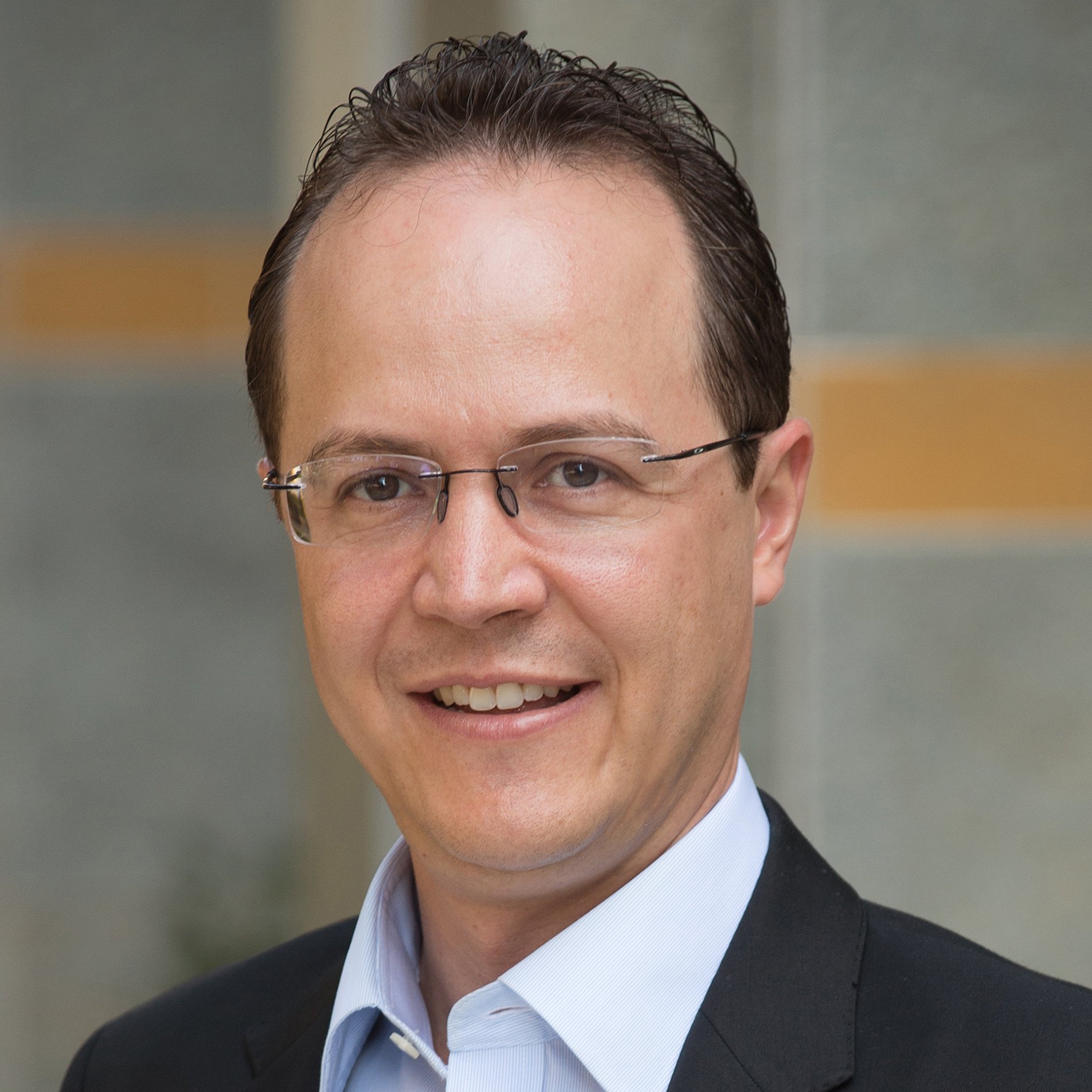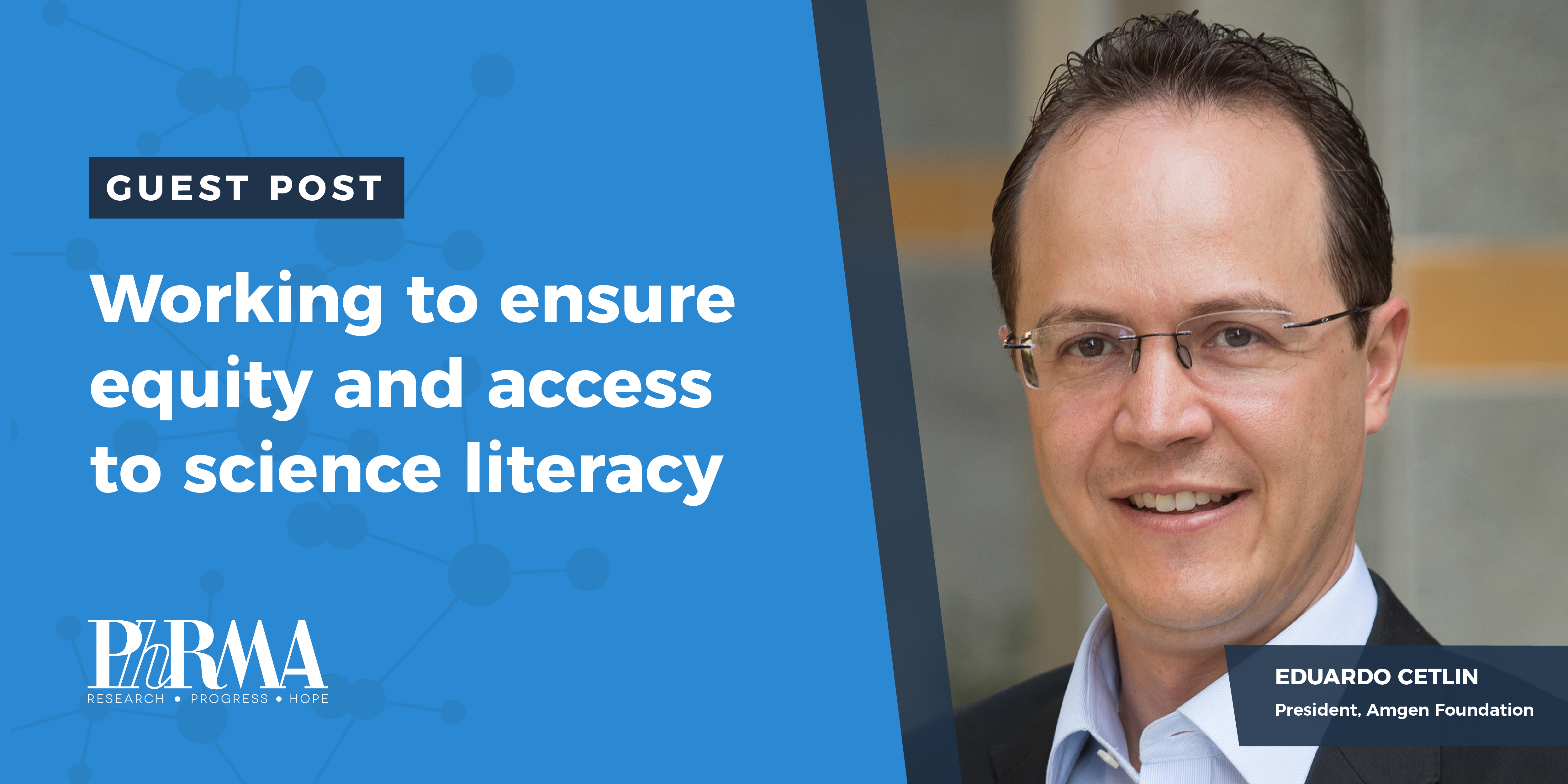 Conversations and healthy debate about issues facing our industry and the health care system are critical to addressing some of today’s challenges and opportunities. The Catalyst welcomes guest contributors, including patients, stakeholders, innovators and others, to share their perspectives and point of view. Today, we are pleased to welcome a guest post from Eduardo Cetlin, President, Amgen Foundation on the work to bring more STEM opportunities to young people as well as advancing racial equity in STEM education.
Conversations and healthy debate about issues facing our industry and the health care system are critical to addressing some of today’s challenges and opportunities. The Catalyst welcomes guest contributors, including patients, stakeholders, innovators and others, to share their perspectives and point of view. Today, we are pleased to welcome a guest post from Eduardo Cetlin, President, Amgen Foundation on the work to bring more STEM opportunities to young people as well as advancing racial equity in STEM education.
Now more than ever, there is a global need to prepare the next generation to tackle tomorrow’s challenges. To get there, we need to create effective opportunities for students to explore the scientific process and make new discoveries. Unfortunately, too many young people still lack opportunities to engage meaningfully in this process, which has led to clear and significant gaps in diversity across scientific fields and in scientific literacy overall.
For nearly 30 years, the Amgen Foundation has sought to advance excellence in science education. As students are kept out of classrooms due to the COVID-19 pandemic, we’re seeing the need for quality remote learning rise as a global priority. It has become increasingly important that teachers and students have the resources they need, which is why the Amgen Foundation is committed to creating opportunities so students and educators can continue, and thrive in, science learning even during “COVID times.”
Our north star is to level the playing field so that all learners have access to high-quality science education. That’s why we support free virtual learning platforms, such as Khan Academy and LabXchange, so students everywhere can experience the trial and error that comes with science learning.
With the Amgen Foundation’s support since 2015, Khan Academy has grown its online biology offering to more than 300 videos, 80 exercise sets and 195 articles. The Amgen Foundation recently awarded Khan Academy an additional $3 million to support the platform’s biology content and deepen its partnership with LabXchange.
Made possible by the Amgen Foundation and Harvard University, LabXchange launched in January on the UN International Day of Education with the goal of providing users with access to personalized instruction, virtual lab experiences, and networking opportunities across the global scientific community.
Our goal is that platforms like Khan Academy and LabXchange will help students find courses and aspects of science that excite them outside of the hands-on environment a classroom provides. LabXchange in particular is a space where people can come together to collaborate and think about ways to address the challenges we face, whether it’s a global pandemic or finding a cure for cancer.
These unprecedented times have also put a spotlight on the issues surrounding racial inequity. These issues affect every aspect of American society, and in response to the recent national and international movement, the Amgen Foundation committed $7.5 million to help advance racial justice – with $2.5 million immediately distributed to national organizations such as the Equal Justice Initiative and Echoing Green, while other funds will be dedicated to local efforts in Amgen communities as well as advancing racial equity in STEM education. As part of the renewed grant to Khan Academy, the Amgen Foundation will also support three underserved school districts that are now facing budget cuts due to COVID-19. This will enable these districts to receive the training, support, and analytics necessary to bring Khan Academy to every classroom in their district. Unfortunately, for many children in the U.S., a zip code often drives educational outcomes.
With all the pressures our communities are facing, including the ambiguity about what the future of in-person learning will look like, it’s still important to keep students on track for success. If there ever was a time for us to work together for progress, to ensure equity and access to science literacy, it’s now.



 Conversations and healthy debate about issues facing our industry and the health care system are critical to addressing some of today’s challenges and opportunities. The Catalyst welcomes guest contributors, including patients, stakeholders, innovators and others, to share their perspectives and point of view. Today, we are pleased to welcome a guest post from Eduardo Cetlin, President, Amgen Foundation on the work to bring more STEM opportunities to young people as well as advancing racial equity in STEM education.
Conversations and healthy debate about issues facing our industry and the health care system are critical to addressing some of today’s challenges and opportunities. The Catalyst welcomes guest contributors, including patients, stakeholders, innovators and others, to share their perspectives and point of view. Today, we are pleased to welcome a guest post from Eduardo Cetlin, President, Amgen Foundation on the work to bring more STEM opportunities to young people as well as advancing racial equity in STEM education.